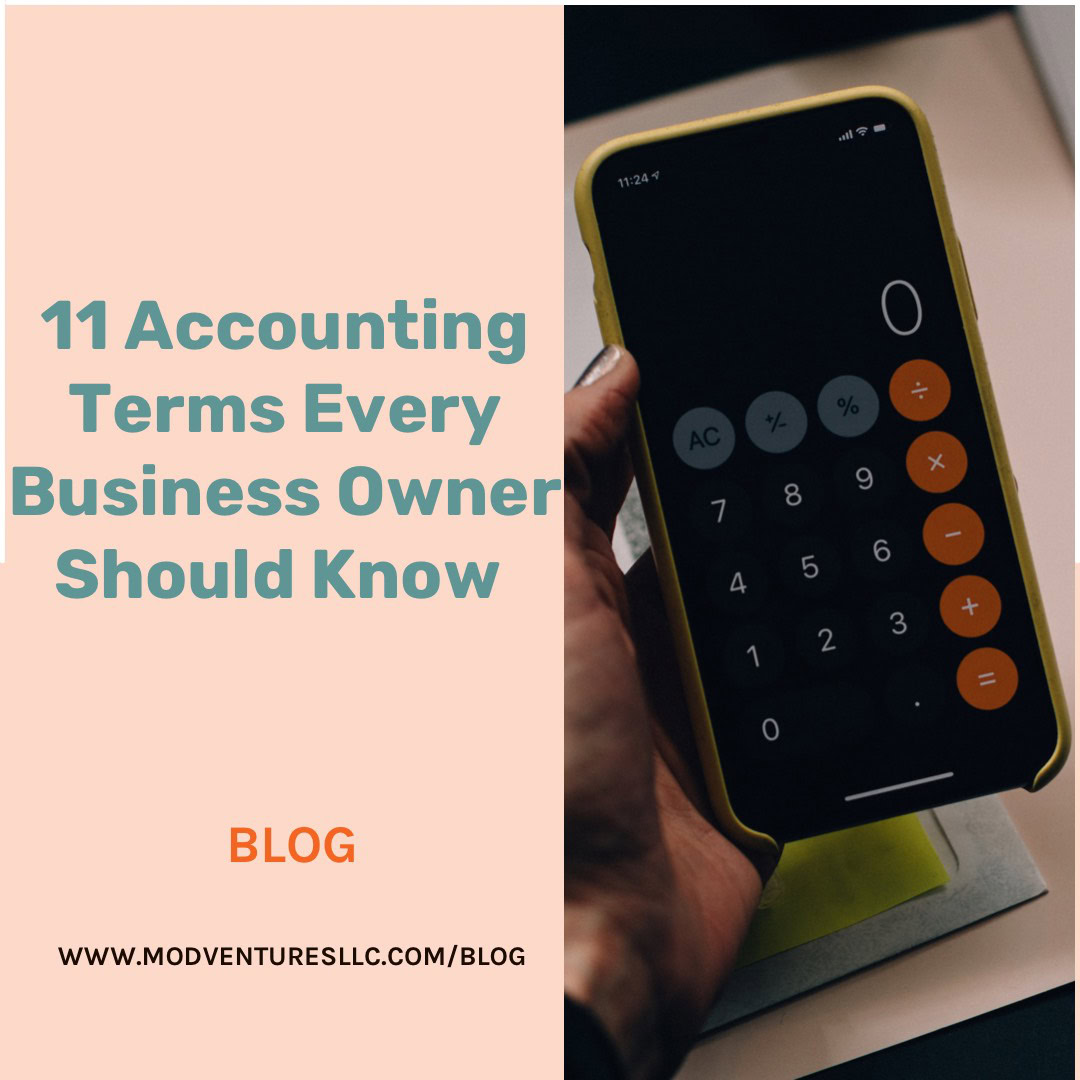By: Gabrielle Luoma CPA, CGMA
By: Gabrielle Luoma CPA, CGMA
When owning a small business you have the responsibility to understand the basics of each department – marketing, human resources, customer service, bookkeeping and accounting, and more. While you may be able to outsource these tasks to specialist, you should be familiar with the basic functions and terminology to ensure your business is getting access to accurate resources. The same applies to accounting services.
Whether handling your accounting in house or outsourcing to a specialist, you, as a business owner, should be familiar with the common accounting terms that may appear in conversation. Here are 11 accounting terms every business owner should know:
#1. Cash Flow
Cash Flow is an accounting term used to describe the flow of cash within your business. Cash flow includes money coming in and going out. A positive cash flow is indicated by a positive number, while a negative cash flow is indicated by a negative number.
#2. Overhead
In accounting, the term Overhead is used to describe the expenses that relate to running your business. This does not include expenses that are incurred by making your product or service. For example, your overhead may include rent, electricity, and salaries but will not include material cost.
#3. Accounts Receivable
A/R or “accounts receivable” is an accounting term that is used to describe the money that a business should receive from its customers for the services performed or the sales of goods. You can learn more about why your small business needs receivable here.
#4. Accounts Payable
Accounts payable, also known as A/P, includes all of the expenses that your business has incurred but has not yet paid. Outstanding debts are considered accounts payable.
#5. Business Type or “Business Entity”
Many aspects of your accounting rely on your Business Entity. Each entity has it’s own requirements, laws, and tax implications. The most common business entities are LLC, S-Corp, C-Corp, Sole Proprietorship, and Partnership.
#6. Equity
Equity refers to the value left over after liabilities have been removed. To find equity, you take your assets and subtract your liabilities. The remainder (equity) is the portion of your business owned by investors and owners.
#7. Profit and Loss Statement
A Profit and Loss Statement – also known as an Income Statement – is a financial statement that summarizes your cash flow. Your P&R statement includes revenues, expenses, and profits over a pre-determined period of time.
#8. Asset
An Asset is anything that your business owns that has monetary value. Assets are typically listed in order of liquidity, from cash to land.
#9. Liability
A Liability is any debt that your business has yet to pay. Liabilities are typically handled and included in accounts payable.
#10. Liquidity
Liquidity is an accounting term that refers to how quickly something can be converted in to cash. For example, stocks can sell quicker than land or real estate.
#11. ROI (Return on Investment)
ROI or Return on Investment refers to the profit that your business generate divided by the investment required. ROI can also be calculated per project or objective rather than as an overall. ROI is typically calculated as a percentage.
Learn more about the basics of accounting for small business owners by listening to our Podcast, Entrepreneurship Unconvered!
You May Also Love
CLOSE






